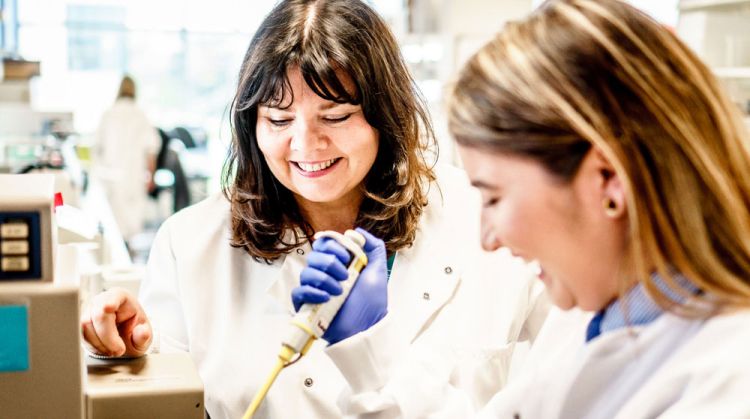About the MCRC

Our centre
In 2008 we founded a pioneering cross-faculty and hospital multidisciplinary cardiovascular research centre (MCRC) which is already reaping major benefits and providing the framework for our vibrant BHF 4-year PhD Programme in Cardiovascular Disease and Diabetes (see PhD Studentships). At the heart of this activity is the Leeds Institute of Cardiovascular and Metabolic Medicine (LICAMM), a 200-strong multidisciplinary institute in a state of the art building (the LIGHT Building) comprising integrated departments for clinical and population science, discovery and translational science, biomedical imaging science and specialist science education. In the past 2 years and in partnership with BHF and other funding agencies we recruited 13 new investigator-level scientists to this institute alone, spanning new tenure-track research-led academics to professors.
Our multi-disciplinary research team spans many faculties at the University and includes a chemist, physicists, a mathematician, imaging scientists, biomedical scientists and clinical scientists. In the ground floor is our new BHF-funded Experimental Preclinical Imaging Facility and adjacent our MRC-funded Advanced Imaging and Data Analytics Centres. Based on this framework we plan to continue our expansion, continuing to develop the careers of outstanding individuals who want to dedicate their lives to solving this disease problem.
The Disease Problem
Most humans in modern societies are cardio-metabolically stressed and therefore suffer adverse cardiovascular and metabolic effects depending on exposure, genetics, life-style and ageing. Significantly, 80% of people who develop the metabolic problem of diabetes die because of the cardiovascular complications caused by their diabetes. The complications are aggressive types of cardiovascular disease which increasingly feature in middle age and are more difficult to treat than cardiovascular disease in the absence of diabetes.
As well as premature death, the complications lead to disabilities, reduced ability to work and reduced quality of life. The heart is impacted but the important vascular component means that implications span the whole body, ranging from intolerance to physical exercise, lower limb ulceration, accelerated arthritis, impaired auditory and visual acuity, renal failure, sexual dysfunction and dementia. The scale of this problem is truly enormous and strongly anticipated to increase in the UK and globally. For UK finances, the burden is 10% of the National Health Service (NHS) budget and set to increase. Critically, current treatment options are limited and largely fail to address the problem.
Our progress so far
If the cardiovascular complications of diabetes are to be solved, short- and long-term scientific progress is required alongside educational, health service and public health efforts. Our cardio metabolic centre is already contributing strongly with the support of the British Heart Foundation and many other important funding agencies. Teamwork is central to how we operate. Through this approach we are solving puzzles at the crux of the disease problem and seeing the ways in which these newly-discovered mechanisms are modulated in diabetes: how blood vessels control insulin sensitivity and respond when insulin sensitivity changes, how endothelium detects blood flow and achieves proportionate response, how blood clots are assembled and regulated and how beneficial responses to physical exercise arise. In patients we have shown the benefits of magnetic resonance imaging (MRI) for diagnosis of cardiovascular disease, the benefits of invasive coronary strategy in non-ST-segment myocardial infarction, the benefits of vitamin D in improving left ventricular function and the increased benefits of beta-blockers in diabetes.

